What is a rheumatologist? A rheumatologist is an internal medicine physician or pediatrician who is qualified by additional training and experience in the diagnosis and treatment of arthritis and other diseases of the joints, muscles, bones, and connective tissue.
Rheumatologists also specialize in treating conditions in which the immune system attacks the body, known as auto-immune disease.
What kind of training do rheumatologists have?
After four years of medical school and three years of training in either internal medicine or pediatrics, rheumatologists devote an additional two to three years in specialized rheumatology training.
Rheumatologist hold general medical licensure through the US Medical Licensure Board, and board certification in either Internal Medicine or Pediatrics as well as board certification in Rheumatology through the American Board of Internal Medicine.
What do rheumatologists treat?
Rheumatologists focus on conservative, non-surgical treatment of osteoarthritis and regional musculoskeletal conditions such as bursitis and tendonitis. Treatment includes the use of medications, joint injections, and physical therapy.
Rheumatologists also treat auto-immune forms of arthritis including rheumatoid arthritis, psoriatic arthritis, and ankylosing spondylitis. These conditions can be crippling and typically require the use of immune system modifying medications.
Rheumatologists specialize in bone health including the early diagnosis and prevention of Osteoporosis.
Rheumatologists also treat auto-immune conditions known as connective tissue diseases, including Systemic Lupus Erythematosus, Sjogren’s Syndrome, and vasculitis.
Other conditions rheumatologists treat include gout, fibromyalgia, and back pain. Rheumatologists treat over 100 different conditions.
When should you see a rheumatologist?
- If musculoskeletal pains in the joints, muscles or bones is severe or persists for more than a few days.
- If you have any of the conditions discussed on this website.
- If your primary care physician recommends rheumatologic consultation. This often occurs when lab work drawn at your primary care physician’s office returns abnormal, including an Anti-Nuclear Antibody (ANA), Rheumatoid Factor (RF), or an Erythrocyte Sedimentation Rate (ESR).
- If you have questions or concerns about having or preventing osteoporosis.
Many types of rheumatic diseases are not easily identified in the early stages. Rheumatologists are specially trained to do the detective work necessary to discover the cause of swelling and pain. It’s important to determine a correct diagnosis early so that appropriate treatment can begin early. Some musculoskeletal disorders respond best to treatment in the early stages of the disease.
Because some rheumatic diseases are complex, one visit to a rheumatologist may not be enough to determine a diagnosis and course of treatment. These diseases often change or evolve over time. Rheumatologists work closely with patients to identify the problem and design an individualized treatment program.


